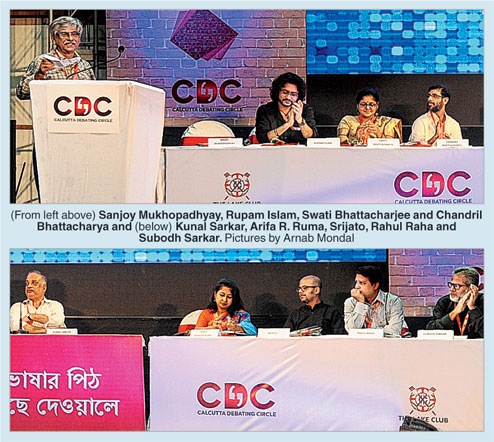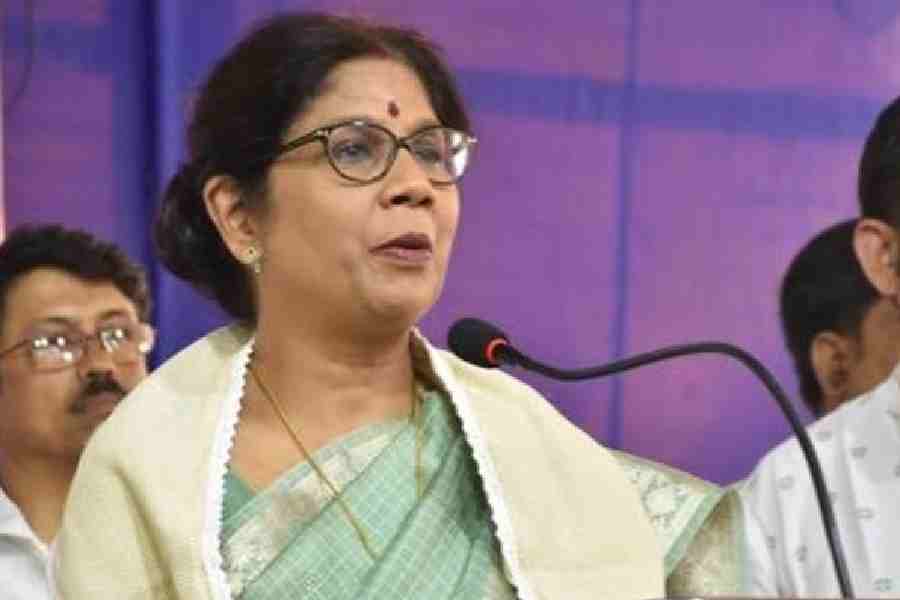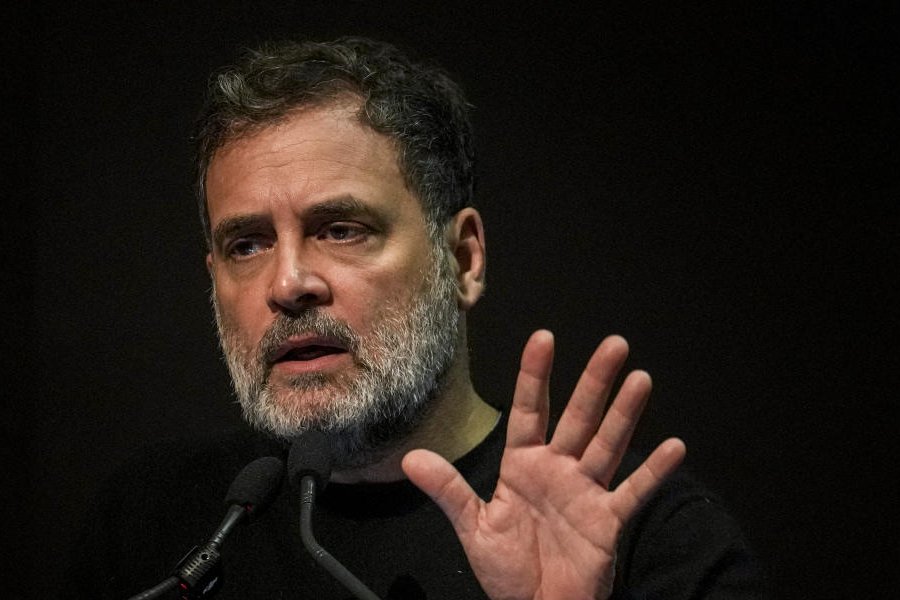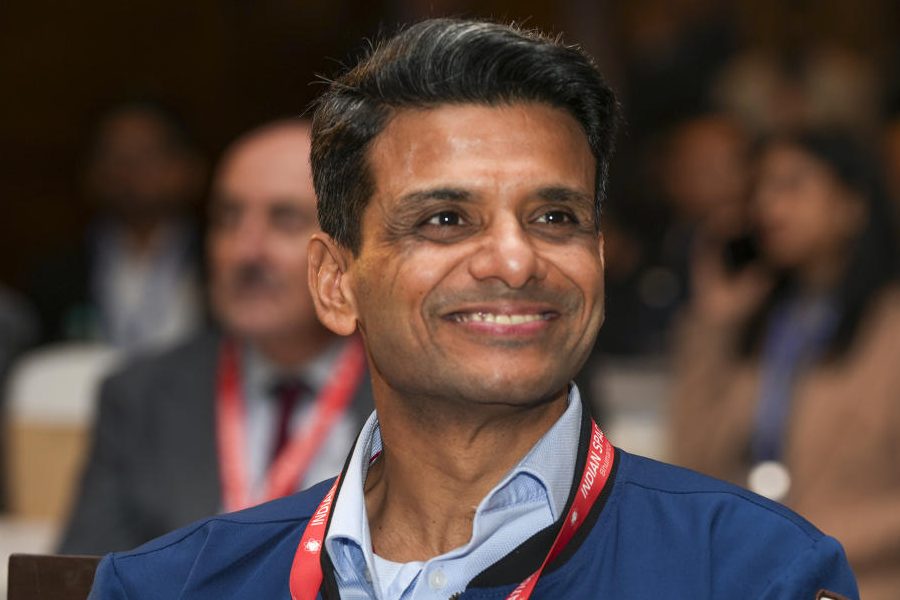
Aug. 31: The Bengali language has its back to the wall. Bangla bhashar pith theke gechhe deoale.
This was the motion at a debate held by Calcutta Debating Circle (CDC) at Lake Club recently. Chaired by cardiac surgeon and CDC managing trustee Kunal Sarkar, the debate, an Anandabazar Patrika and ABP Ananda event with The Telegraph as its partner, got off to a crackling start with the first speaker, journalist and writer Chandril Bhattacharya, unleashing his fury at the way the Bengali language is breaking down. In the audience sat poet Sankha Ghosh, to whom almost everyone on the stage paid a tribute, even as scholar Pabitra Sarkar, artist Shuvaprasanna and filmmaker Kamaleswar Mukherjee formed the panel of mentors.
Chandril picked on a few seemingly innocuous phrases that have entered the language, such as " keno ki", a direct translation of the Hindi "kyun ki", instead of " karon" (because), or "khabar lagiye diyechhi" (literally, have applied the food), inspired by the Hindi " khana laga diya". This was not change, he said, but distortion, which was possible only because the Bengali has stopped thinking in Bengali.
Because she has forgotten her language. Because the language is not worth much anymore. As consumerism saturates our lives, and the high-end product appears through English, or perhaps Hindi, such a scale of value eventually comes to inform all aspects of social life. English is empowerment. The person who speaks Bengali, and Bengali alone, is marked down. She does not matter. There is no hope. Bengali is finished.
Such bleak a prospect did not discourage Arifa R. Ruma, who teaches at Bangladesh Open University. Speaking against the motion, she raised a pertinent point: when we speak of Bengali in West Bengal, do we have Bangladesh in mind? She said Bengali was alive and kicking in Bangladesh, but in West Bengal, the Bengalis were just indulging in " duhkhobilas" ("wallowing in self-pity"). To which a combative Swati Bhattacharjee, journalist and writer, said Ruma's idea of the Bengali language reminded her of Sandhyarani, the "mother" on the Bengali screen who suffered everything, tearfully, submissively. In truth, there was always a disconnect between Bengali, the language of refinement, and the ordinary people. As W.C. Bonnerjee had told Tagore, Tagore's poetic Bengali at a public meeting had been almost as foreign as English. In this gap, English has entered our daily lives. Look at the word "daily"!
At this point, poet Srijato, speaking against the motion, turned the table on his opponents. He pointed at each speaker for the motion: Vhandril, Swati, singer Rupam and film studies professor Sanjoy Mukhopadhyay, and said that each wrote, or sang, in the Bengali language, to wonderful effect. All reports of its death were exaggerated. The house exploded in applause.
Rupam spoke gently, and imaginatively, saying that he thought of the language as a human body and was worried that English was replacing Bengali as the language of emotion, of love.
Rahul Raha, a journalist from Bangladesh, defended Bengali spiritedly again, pointing out one reason why Bengali will always be courted: the language is spoken by a number of people that is slightly less than the US population. It is a huge market.
Speaking with acerbic wit, Mukhopadhyay pointed at a huge crisis: the decline of Bengali-medium schools. When his neighbour had heard that Mukhopadhyay sent his son to a Bengali-medium school, the neighbour had said the child would learn abusive language, as "only children of maid servants studied there". Class prejudice is powered by money, and Bengali is a casualty. Poet Subodh Sarkar, speaking last, however, still expressed his faith in the language.
The mentors spoke at the end. Pabitra Sarkar said a language works differently in various layers, depending on the strength of the economy, politics and culture influencing it. At the end, Sankha Ghosh reminded what Tagore translator William Radice, British himself, had said: "If you want to learn English, go to Calcutta. If you want to learn Bengali, go to Dhaka."
The motion won, though by a narrow margin. But the wording of the motion itself had played into the debate. It was a direct translation of the English phrase: "Having one's back to the wall."











